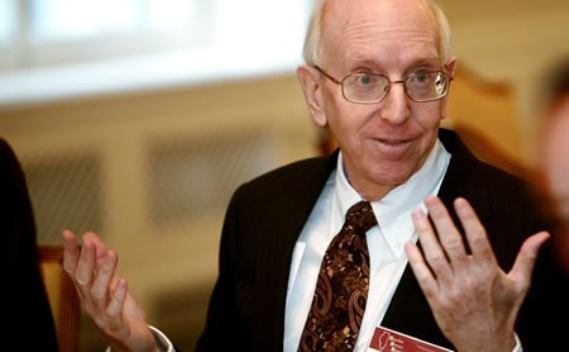
Amaya Vindicated by Federal Court in Illinois “Loss Recovery” Case

Judge Richard Posner who ruled in favor of Amaya. He said a ruling for the plaintiffs would be against the public interest. (Image: casnocha.com)
Amaya has dodged a bullet in Illinois, where a federal appeals court ruled last week that the company will not have to repay money lost by state residents at PokerStars and Full Tilt.
And crucially, the court made the important distinction between rake and winnings; a point that may aid Amaya in its legal battle with the state of Kentucky, which is currently attempting to sue the online gaming giant for $870 million in “losses” it believes were incurred by Kentuckians at the site.
The case in Illinois was initially brought in August 2012 by two mothers, Kelly Sonnenberg and Judy Fahrner, who were seeking to reclaim money lost by their sons and “other gamblers” on PokerStars and Full Tilt before they ceased US operations in 2011.
Sonnenberg and Fahrner believed that an obscure 19th century statute called the Illinois Loss Recovery Law entitled them to sue Amaya in relation to losses incurred not only by their sons but many, many other Illinois poker players too.
PokerStars Not the “Winner”
The law states that any Illinois gambler who loses $50 or more has the right to sue the winner to get the money back. Somewhat bizarrely, it also states that should the losing gambler not sue the winner within sixth months, then “any person” is permitted to sue, for up to three times the amount.
Thus, the ladies were attempting to sue Amaya on behalf of countless others, for an undisclosed sum that possibly could have stretched into millions.
You have to hand it to them for trying.
In dismissing the initial case, the judge highlighted the fact that PokerStars was simply charging a rake, and therefore could not be perceived as a “winner,” or even as a gambler, but he also noted that the plaintiffs had failed to cite any specific “losing players,” or the dates on which their alleged losses occurred.
Against Public Interest
Judge Richard Posner agreed with this assessment when he upheld the ruling last week. He also said that it would be “unreasonable to read a private right of action against the operators of illegal sites in the civil loss recovery law, given that criminal penalties are already imposed by the state.”
Furthermore, he felt that a ruling in favor of the lawsuit would go against public interest by encouraging reckless gambling.
“Hordes of new gamblers might be enticed to gambling websites if gamblers couldn’t lose any money there because the hosts of the websites would have to reimburse any losses they incurred,” he wrote.
“A gambler knows that the money he puts in the pot is at risk. It is not a risk he has to take; he takes it because he hopes to win the pot, or simply because he likes gambling or risk taking in general.”
Amaya praised the ruling and said it hoped courts in Kentucky will apply the same logic.















0 Comments